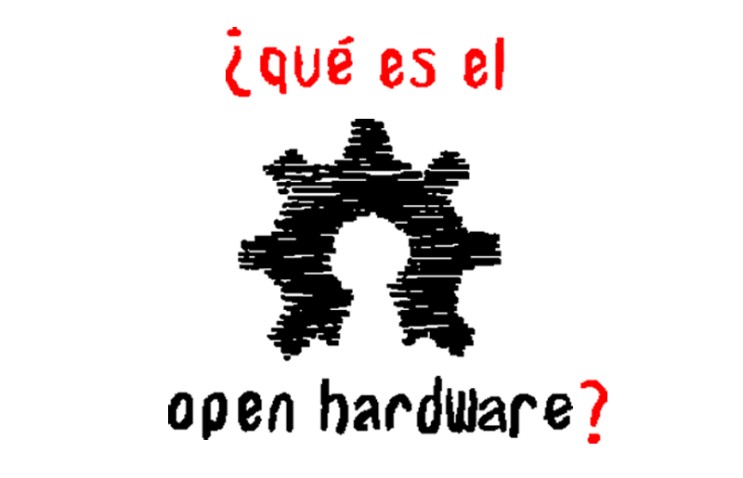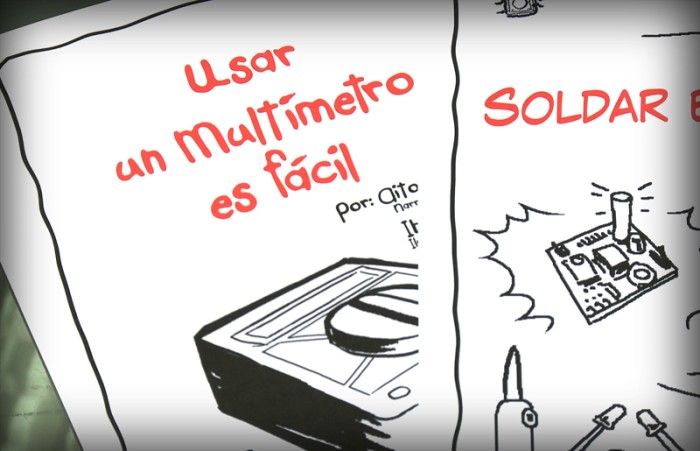Contributing € 5
Web recognition
Your name will appear on our website as “Cofinancer” of each Tutomic.
> 16 Co-financiers
Goteo ha construido una historia única en el mundo del micromecenazgo. ¿Quieres seguir formando parte de ella?
We use own and third party cookies to improve your user experience and our services, analyzing users' browsing in our website. If you continue browsing, we will consider that you consent to its use. You can get further information in our Cookies Policy
You have to sign in to see this page
Tutomics


 Min.
Min.
 Opt.
Opt.
Your name will appear on our website as “Cofinancer” of each Tutomic.
You will receive a digital certificate with a personalized illustration, where you will be credited as a collaborator on this project + Web recognition
We will send you a dedicated hard copy of all the Tutomics + Illustrated diploma + Web recognition
We will send you an Arduino Uno R3 microcontroller + Tutomics printed edition + Illustrated diploma + Web recognition
Designed for trainers or training centers. A 20-hour course of introduction to Arduino, which will teach you how to use the open source platform that is radically changing the way we see electronic prototyping. (Maximum 10 people per group. Didactic material, displacement and accommodation costs are not included in the reward).
Comic book tutorials to get into the world of electronics, open hardware and DIY manufacturing.
 Task
Task
|
Minimum | Optimum |
|---|---|---|
|
Content creation - 1st Set
Collection of information related to the project and development of texts for the first set of tutorials.
|
€ 1.000 | |
|
Adaptation and screenwriting - 1st Set
Synthesis of contents and structuration in comic format. Development of scripts for the first set of tutorials.
|
€ 602 | |
|
Ilustration - 1st Set
Making drawings and illustrations for the first set of tutorials based on the structures established in the previous section.
|
€ 1.802 | |
|
Layout - 1st Set
Preparation of the contents of the first set of tutorials both for viewing online and for download in PDF format.
|
€ 400 | |
|
Publishing - 1st Set
Upload images, texts and files of the first set of tutorials to the website.
|
€ 200 | |
|
CONTENT CREATION - 2nd Set
Collection of information related to the project and development of texts for the 2nd block of tutorials.
|
€ 1.000 | |
|
ADAPTATION AND SCREENWRITING - 2nd Set
Synthesis of contents and structuration in comic format. Development of scripts for the second set of tutorials.
|
€ 602 | |
|
Ilustration - 2nd Set
Making drawings and illustrations for the second set of tutorials based on the structures established in the previous section.
|
€ 1.802 | |
|
Layout - 2nd Set
Preparation of the contents of the second set of tutorials both for viewing online and for download in PDF format.
|
€ 400 | |
|
Publishing - 2nd Set
Upload images, texts and files of the first set of tutorials to the website.
|
€ 200 | |
| Total | € 4.004 | € 8.008 |
The aim of this initiative is to develop a set of comic book tutorials that allows people of all ages, cultures and genders to enter into the world of electronics, open hardware and DIY manufacturing in a fun and flexible way.
These tutorials are presented as comic books to make them more accessible, reinventing the presentation model of this information and making it much more attractive to those people who still believe this kind of content is boring or difficult to address.
Develop a set of ten comic book tutorials where we explain how to use the basic tools to enter into the world of electronics, open hardware and DIY culture.
These tutorials will ingeniously explain how to use the different basic tools found in an electronics or DIY manufacturing studio. You will discover what open hardware is, learn how to read the code of resistors or distinguish between the different electronic symbols. We will explain how to solder with tin, how to use a multimeter, a gauge or a breadboard, and you will learn the fundamentals of power supplies or batteries .
All these tutorials will be available online for you to consult them at anytime and also in PDF format for you to download and print. All of them will be published under open licenses, so you can reproduce, modify, translate or distribute them.

After several years working as an employee in the lightning design and audiovisual integration field, I understand that it is about time to establish myself on my own.
A little while later, I developed an online sales platform where I sell open hardware devices oriented towards the scope of activity of the studio, in order to create a place where others can join. During that process I incorporated devices that require some knowledge of electronics or DIY manufacturing, and saw how the applicant, despite appearing very interested, were hesitant due to their lack of knowledge or experience.
Given this situation, and being totally convinced that electronics, open hardware and DIY manufacturing are truly accessible, I searched the Internet and found a comic book tutorial by Mitch Altman and Andie Nordgren which explained how to solder (http://mightyohm.com/soldercomic).
I translated it immediately and began to forward it to everyone who said, “But I don’t know how to solder”. In every case, the result was very positive, proving that the use of this format for the presentation of certain contents that appear difficult, makes them child’s play.
This project is aimed at anyone interested in getting into the world of electronics and open hardware, but perceives it as something complicated and boring, It is specially aimed at educational centers, trainers who want to get their students in this area, DIY fans, curious minds or professionals from other fields who want to expand their knowledge.
The main short-term objective is to raise the necessary funds to cover the associated costs of the project and allow us to devote ourselves full time to the development and completion of all the contents. We are also motivated by the interest which such documentation may bring about in society and the chosen form for its distribution.
In the short-medium term, we want to create a source of reference information for electronics, open hardware and DIY manufacturing, where you can find contents relevant both to newcomers and those who already have basic knowledge, creating a user community, in connection with that information that can be expanded and improved.
In the long term, we want to maximize the user community and encourage the use of this type of device in daily life, promoting a different ethic in which consumer electronics can be modified by the users and not by the corporations, helping the general public to design and/or modify these consumer electronics devices so that they fit their needs better, and inviting them to share their knowledge with others.
The team is made up of two people:
Aitor Aloa
Designer and AV integrator. He collaborated in several projects among which stands out “The Pavilion of the Future” for the Shanghai World Expo in 2010. Currently, he combines the design and installation works of lightning and audiovisual systems, with the management of an online store oriented to open hardware and the research of open source devices that have a place within the scope of the studio.
Ibon Sanchez
Professional cartoonist and illustrator. He has been scribbling on all kind of surfaces since he can remember (his mother use to telling him off for painting on the walls of the house). Among his latest works we can find illustrations for Siroka Taldea's “Karosi” CD-Book or the ecologist magazine Bizkaia Maitea, numerous comic strips for La Gallina Vasca or the design of panels for several “Txosnas” in Bilbao's Aste Nagusia (Bilbao's fiestas).
We have all the equipment and infrastructure neccesary to carry out the project: workspace, computers, illustration and layout software, sketchbooks, graphics tablets, printing and binding tools, etc.

Web recognition
Your name will appear on our website as “Cofinancer” of each Tutomic.
> 16 Co-financiers
Illustrated diploma
You will receive a digital certificate with a personalized illustration, where you will be credited as a collaborator on this project + Web recognition
> 12 Co-financiers
Tutomics printed edition
We will send you a dedicated hard copy of all the Tutomics + Illustrated diploma + Web recognition
> 33 Co-financiers
Arduino Uno R3
We will send you an Arduino Uno R3 microcontroller + Tutomics printed edition + Illustrated diploma + Web recognition
> 24 Co-financiers
Arduino workshop
Designed for trainers or training centers. A 20-hour course of introduction to Arduino, which will teach you how to use the open source platform that is radically changing the way we see electronic prototyping. (Maximum 10 people per group. Didactic material, displacement and accommodation costs are not included in the reward).
> 01 Co-financiers
Individuals or groups who want to promote our project through their blog or social networks. People who have contact or work in organizations and/or m
People who help in translating contents into other languages, mainly Basque and English.
Persons interested in receiving the Tutomics before the publication to ensure that they do not have any misprints and are truly legible.